|
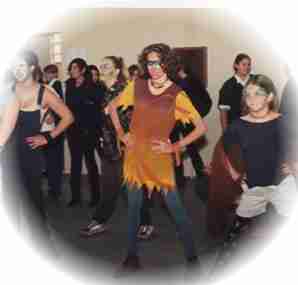
March 1999 saw, at St. Julian's, a bold, experimental production of Shakespeare's comedy A Midsummer Nights Dream. The plays traditional themes of magic, love and comic misunderstanding are maintained but given a fresh reworking by setting the play in the aftermath of a catastrophic war (between Theseus, Duke of Athens, and Hippolyta, Queen of the Amazons). The reconciliation and healing process which has to take place should strike a chord with a contemporary audience bombarded with images of war and terror.
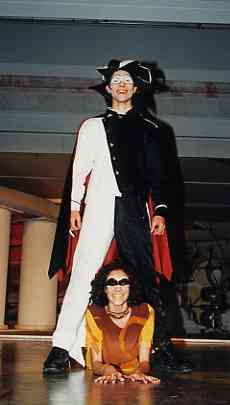
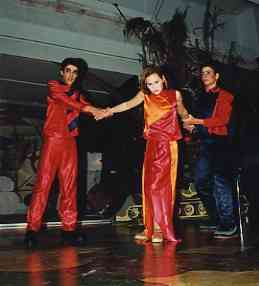
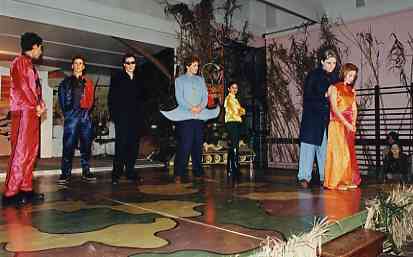
The Dream, as it is popularly referred to, is a well-known play, a Key Stage 3&4 text and is a favourite with repertory companies and touring troupes. In some ways the play has become too familiar. Over the years it has proved increasingly difficult to produce Shakespeare in a vivid and immediate way, given the prominence of film and video, which have arguably become todays performance texts. The immensely popular Baz Luhrmann's Romeo and Juliet has managed to satisfy critics, teachers and the general public. Setting the play as he does in contemporary Los Angeles has allowed Shakespeare to once again seem relevant to a modern audience. I think its a milestone. Whats needed now is an equally daring and playful approach to live theatrical performances of Shakespeare. I dont see any point in directing Shakespeare for the stage unless we treat him as our contemporary and strive to arouse an audience's passions.
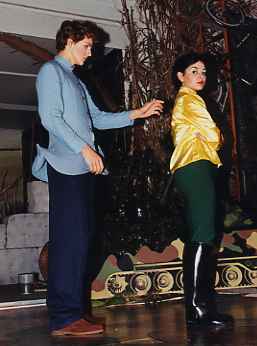
Also new about this version of The Dream is the addition of a musical soundtrack and an original score which sets Shakespeare's language to music, traditional to modern, baroque to blues. The play also features dance which will emphasise the sheer pleasure of performance and the physical presence of live actors. And it is precisely in the dynamic relationship between the real presence of the actor and spectator which embodies the power and magic of theatre.
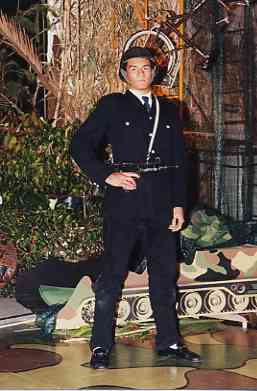
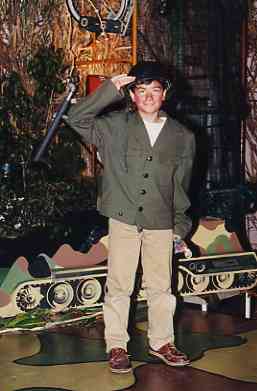
|
